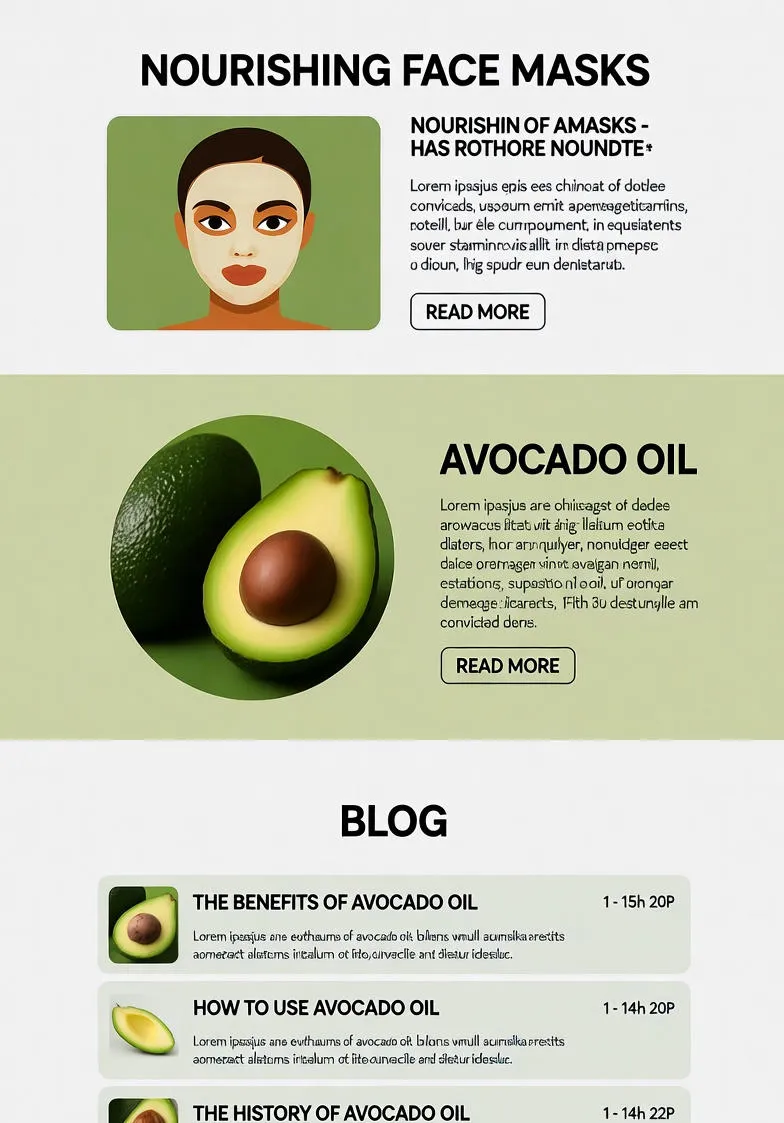Hydration During Pregnancy: Essential Water Intake Recommendations Explained
A comprehensive guide to water intake recommendations for pregnant women. Learn the essential amount of fluid needed, the role of water in fetal development, and key strategies to prevent dehydration during all trimesters.

Understanding the Crucial Role of Water in a Healthy Pregnancy
Pregnancy is a remarkable journey of creation and change, demanding extraordinary attention to maternal health and nutrition. Among the many dietary considerations, perhaps none is as fundamental—yet often underestimated—as proper hydration. Water is not merely a thirst quencher during these nine months; it is an indispensable nutrient, a critical medium for all physiological processes that support both the mother and the developing fetus. Understanding and adhering to specific water intake recommendations is paramount for mitigating common pregnancy discomforts and ensuring optimal fetal development. This comprehensive guide will explain *why* water is so vital and offer clear, actionable recommendations endorsed by leading health organizations.
The Physiological Demand: Why Pregnancy Increases Your Need for H2O
During pregnancy, your body undergoes profound changes that significantly increase its water requirements. The volume of blood circulating through your body, for example, can increase by 30 to 50 percent to meet the needs of the placenta and the developing baby. This increased blood volume requires ample fluid intake to maintain the correct viscosity and circulation efficiency. Furthermore, water is a foundational component for:
- Amniotic Fluid Formation: The amniotic sac, which cushions and protects the fetus, is primarily composed of water. Maintaining adequate fluid levels is crucial for replenishing the amniotic fluid, which the baby continuously swallows and excretes.
- Nutrient Transport: Water is the medium through which essential vitamins, minerals, and hormones are transported to the fetal circulation via the placenta.
- Waste Removal: Your kidneys are working overtime to filter waste products from both your body and the baby's. Proper hydration aids this process, helping to flush out toxins and reduce the concentration of urine, which can help prevent urinary tract infections (UTIs)—a common concern during pregnancy.
- Cell Production: Every cell in the developing baby is dependent on adequate hydration for its formation and function.
Establishing the Baseline: How Much Water is Enough?
The standard 'eight glasses a day' advice is often insufficient for non-pregnant adults and even more so for expectant mothers. While specific needs can vary based on climate, activity level, and pre-pregnancy weight, leading health organizations provide a concrete baseline for pregnant women. The American College of Obstetricians and Gynecologists (ACOG) and other medical bodies typically recommend:
The general recommendation for pregnant women is to consume approximately 10 (8-ounce) glasses of fluid per day, totaling about 2.3 to 3 liters (or 80 to 96 ounces) from all beverages and water-rich foods.
It is important to note that this recommendation refers to *total fluid intake*. While plain water should constitute the vast majority of this intake, other healthy fluids like milk, herbal teas (approved by your doctor), and fruit- and vegetable-based broths also contribute. However, sugary drinks, excessive caffeine, and unpasteurized juices should be limited or avoided, as they can have dehydrating effects or pose other health risks.
Breaking Down the Fluid Intake Recommendations
1. Water: The Primary Source
Aim to consume at least **8-10 glasses (64-80 ounces)** of pure water daily. This baseline is essential for maintaining blood volume, preventing constipation, and supporting kidney function. Distribute this intake evenly throughout the day rather than drinking large amounts at once. This constant trickle is more effective for sustaining optimal hydration.
2. Fluids from Food
Approximately 20% of your daily fluid intake can come from water-rich foods. Incorporating fruits and vegetables like **cucumbers, watermelon, strawberries, citrus fruits, and leafy greens** not only contributes to your fluid goal but also provides necessary fiber, vitamins, and electrolytes. This is a synergistic approach to meeting both hydration and nutritional needs.
3. Adjusting for Activity and Environment
The baseline recommendation must be increased under certain conditions:
- Exercise: If you engage in physical activity, you should add **one to two extra glasses (8-16 ounces)** of water for every hour of moderate exercise. This is necessary to replace fluids lost through sweat.
- Hot or Humid Climates: Increased ambient temperature leads to greater evaporative fluid loss. Be proactive and increase your water intake by **2-4 extra glasses** on hot days.
- Illness: Vomiting, diarrhea, or fever can lead to rapid fluid loss. In these situations, consult your healthcare provider immediately, as you may require oral rehydration solutions or medical intervention.
Recognizing and Addressing Dehydration During Pregnancy
Dehydration is a state where the body loses more fluid than it takes in, and during pregnancy, its effects can be more severe. Even mild dehydration can contribute to:
- Fatigue and Dizziness: Reduced blood volume can lead to lower blood pressure and feelings of lightheadedness.
- Constipation and Hemorrhoids: Water softens stool, making it easier to pass. Lack of water exacerbates common pregnancy constipation.
- Headaches: Dehydration is a major trigger for tension headaches and migraines.
The most serious potential complication of severe dehydration, particularly in the third trimester, is the risk of triggering Braxton Hicks contractions or, in rare cases, preterm labor. When the body is dehydrated, the concentration of certain hormones, including vasopressin (which is chemically similar to oxytocin, the hormone that causes contractions), can increase, potentially leading to uterine irritability.
Key Indicators of Dehydration
The simplest and most reliable indicator of your hydration status is the color of your urine. **Pale yellow or straw-colored urine** is a sign of adequate hydration. If your urine is **dark yellow or amber**, it is a strong signal that you need to increase your fluid intake immediately. Other signs include:
- Infrequent urination (less than every 2-3 hours).
- Dry mouth or chapped lips.
- Muscle cramps.
Tips and Strategies for Consistent Hydration
Achieving the recommended fluid intake can seem challenging, especially when dealing with morning sickness, frequent urination, or a lack of appetite. Here are practical strategies to help you stay consistently hydrated:
Make it Accessible and Appealing
- The Hydration Station: Keep a reusable, insulated water bottle with a volume marking (e.g., 32 oz) constantly within reach, whether at your desk, in your car, or by your bedside. Tracking how many times you refill it simplifies monitoring your total intake.
- Infuse for Flavor: If plain water is unappealing, infuse it naturally with slices of **lemon, lime, cucumber, mint, or berries**. This adds a pleasant flavor without the unwanted sugars of commercial beverages.
- Hydration Hacks: Try eating ice chips or healthy frozen fruit pops, especially if nausea makes drinking difficult.
Establish a Hydration Schedule
Structure your intake around your daily routine:
- Upon Waking: Drink one large glass of water first thing in the morning to rehydrate after sleep.
- Before Meals: Drink a glass of water 30 minutes before each main meal. This can also help with satiety and digestion.
- Between Meals: Sip water continuously throughout the intervals between breakfast, lunch, and dinner.
- Before Bed: Drink a small glass of water an hour before sleeping. While this might lead to one extra trip to the bathroom, it ensures you don't become dehydrated overnight. However, avoid large amounts right before bed to minimize nocturnal awakenings.
The Importance of Electrolytes and Preventing Over-Hydration
While the focus is correctly placed on avoiding dehydration, it is also important to consider the balance of fluids and electrolytes. Electrolytes (such as sodium, potassium, and chloride) help regulate nerve and muscle function and maintain the correct fluid balance. In most cases, a balanced pregnancy diet provides sufficient electrolytes. However, if you are experiencing severe morning sickness (hyperemesis gravidarum) with persistent vomiting, you may deplete electrolytes, requiring medical supervision and possibly an oral rehydration solution.
Can you drink too much water? While rare, excessive water intake (over-hydration) can lead to a condition called **hyponatremia**, where the sodium level in the blood becomes dangerously low. This typically only happens with truly excessive intake (far exceeding 4-5 liters a day) without replacing electrolytes, or if there is a pre-existing kidney condition. Stick to the recommended 2.3–3 liter fluid intake, listen to your body, and pay attention to urine color; if it is completely clear, you may be consuming more than necessary.
Conclusion: Making Hydration a Non-Negotiable Priority
Proper hydration is one of the easiest, cheapest, and most effective ways to invest in a healthy pregnancy. It supports your vastly expanded circulatory system, nurtures the amniotic environment, aids digestion, and minimizes the risk of painful complications like UTIs and constipation. The difference between feeling fatigued and feeling energized, or experiencing mild contractions and maintaining a healthy pregnancy, can often come down to the simple act of drinking a little more water. Treat your daily fluid goal as an essential, non-negotiable part of your prenatal care, just like taking your prenatal vitamin. By committing to consistent and adequate water intake, you are actively ensuring the best possible environment for your baby to grow and thrive.


